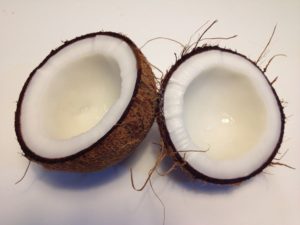 Posted February 19, 2018 | kids, Nutrition & Health Tips
Posted February 19, 2018 | kids, Nutrition & Health Tips
By Brooke Erickson, MS, CN
The Ketogenic Diet (KD) has gained a lot of attention lately and for good reason. Its therapeutic use, especially relating to metabolic and neurological conditions, has a lot of potential benefits and is currently a hot topic in scientific research. The KD was originally developed by the Mayo Clinic in the 1920’s for the treatment of epilepsy to control seizures. In addition to treating epilepsy, research has shown that the KD also improves mitochondrial function and while the exact root cause of autism is not known, recent studies are finding that mitochondrial dysfunction is an important factor that contributes to symptoms. There are limited clinical studies on the effects of the KD on autism as this is a new area of research, but so far the results looks promising, especially for improved cognition and behavior, as well as those who experience seizures.
A recent study compared the effect of the Modified Atkins Diet (MAD), a gluten-free/casein-free diet (GFCF), and a control diet and found that both the intervention diets showed significant improvement in autism-related test markers in comparison to the control diet.1 However, the MAD scored better results in cognition and sociability when compared to the GFCF diet. While this is only one small study, these results open the door for more research on the potential benefits of KD’s on autism, as well as the combination of both a KD and GFCF diet.
There are currently several different variations of the KD being used clinically. The classic KD is high in fat, adequate in protein, and low in carbohydrates with a ratio of 4:1 (fat: protein + carbohydrates) or 90% fat, 6% protein, 4% carbohydrate. This is the most structured version of diet and requires foods to be weighed using a food scale. Other modified versions of the diet have been adapted with macronutrient ratios ranging from 4:1 to 1:1. The MAD, used in the mentioned study, was developed by John Hopkins Hospital as a less restrictive alternative that doesn’t have limits on calories or protein with a ratio of approximately 0.8-1:1. This makes the MAD easier to manage, especially when eating out.
 The nutritional approach of the KD is to mimic fasting and force the body into using fat as the primary fuel source instead of glucose. In this metabolic state, fats are converted to fatty acids and the liver produces ketone bodies, which can be used for energy. Ketone bodies are especially beneficial as an energy source for the brain because they can cross the blood-brain barrier. When there are a certain number of ketones in the blood you reach what is called ketosis. The goal of the diet is to maintain ketosis by restricting carbohydrates and sustaining the appropriate ratio of macronutrients.
The nutritional approach of the KD is to mimic fasting and force the body into using fat as the primary fuel source instead of glucose. In this metabolic state, fats are converted to fatty acids and the liver produces ketone bodies, which can be used for energy. Ketone bodies are especially beneficial as an energy source for the brain because they can cross the blood-brain barrier. When there are a certain number of ketones in the blood you reach what is called ketosis. The goal of the diet is to maintain ketosis by restricting carbohydrates and sustaining the appropriate ratio of macronutrients.
The exact mechanisms that make the KD beneficial for autism is not fully understood, but we do know that it improves mitochondrial function while reducing inflammation and oxidative stress. One mechanism that is thought to factor into the benefits of the KD for autism is the calming effect that ketones have on nerve cells and their neuroprotective properties, which may help reduce autism-like behaviors and symptoms.
It’s important to note that the KD is not appropriate for everyone and you should consult with your doctor before starting the diet. There are several health conditions that are contraindicated and should be considered before starting a KD. If you are interested in learning more about the KD and whether it could be beneficial for you or your child please make an appointment with your doctor.
References
1. El-Rashidy, O et al. “KD versus gluten free casein free diet in autistic children: a case-control study” Metab Brain Dis. 2017 Dec;32(6):1935-1941
2. Cekici H, Sanlier N. “Current nutritional approaches in managing autism spectrum disorder: A review.” Nutr Neurosci. 2017 Aug 1:1-11
3. Cheng, N, Rho, JM, Masino, S. “Metabolic Dysfunction Underlying Autism Spectrum Disorder and Potential Treatment Approaches” Front Mol Neurosci. 2017; 10: 34.
This Post Has 0 Comments